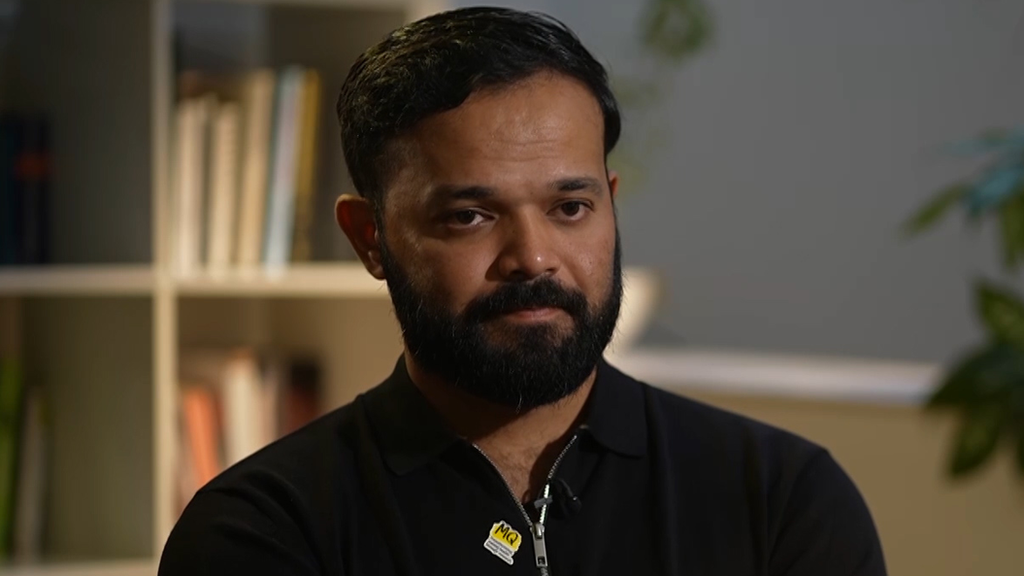Leicester volunteers call for action on grassroots cricket racism
- Published
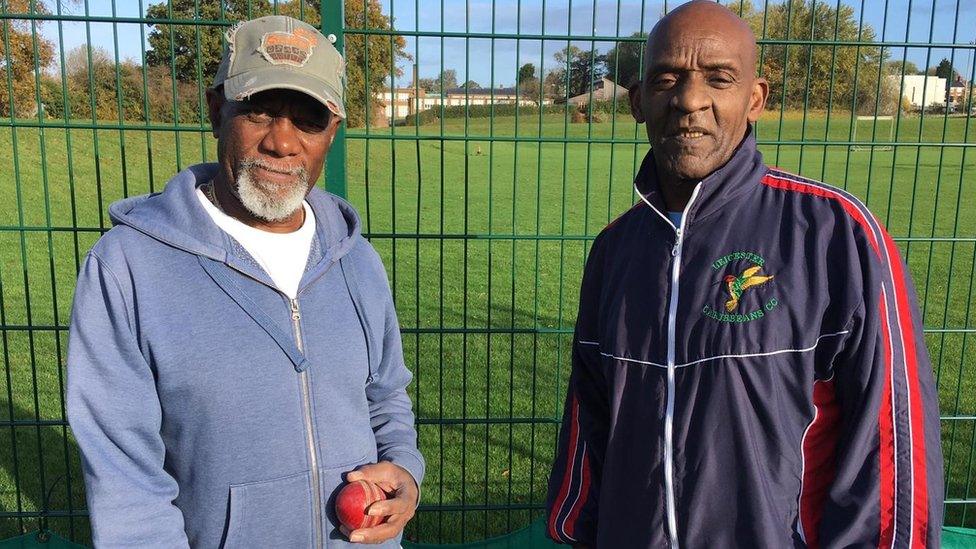
Hal Goring (left) and Fitzroy Wallace have called for change
Racism in cricket is still holding players back, those involved in the grassroots game have said.
It comes after former Yorkshire cricketer Azeem Rafiq, speaking to a committee of MPs, described the English game as "institutionally racist".
One volunteer with Leicester Caribbean Cricket Club said current revelations were just "the tip of the iceberg".
Another said lots of talented black and Asian players did not get the same opportunities as white counterparts.
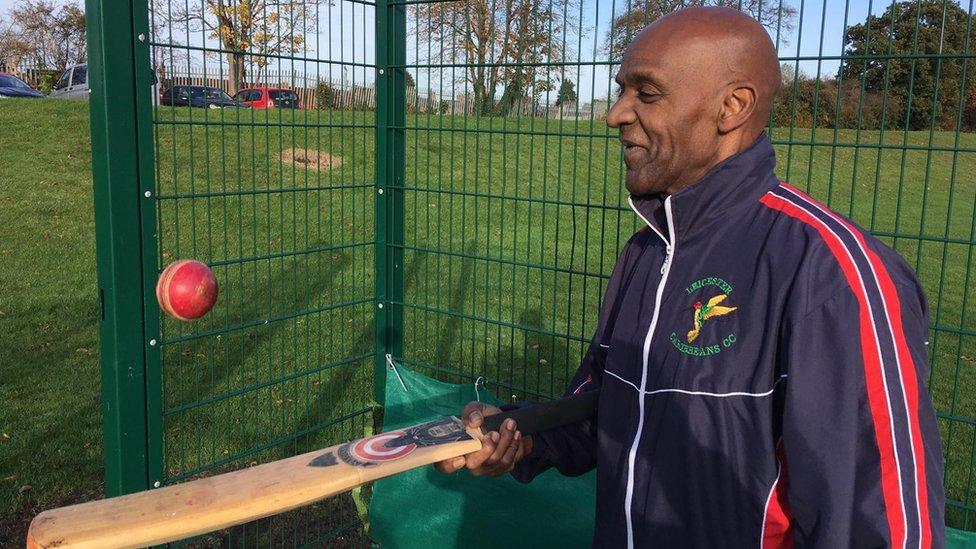
Fitzroy Wallace said Rafiq's comments were not a surprise to him
Fitzroy Wallace, who has been playing since the 60s, said: "We would be called names and everything like that. You could hear them mumbling.
"The people that was in charge of us [at home] would always tell us before we leave 'Be on your best behaviour, because you are going to be riled up'.
"I felt for Rafiq and his family but that is what has been going on, there's been worse than that going on, things like that are just the tip of the iceberg."
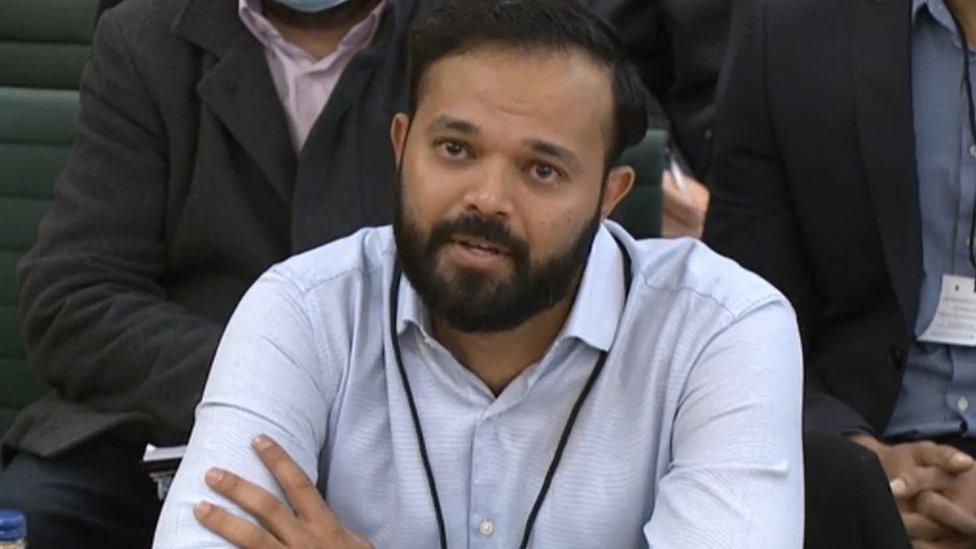
Former Yorkshire cricketer Azeem Rafiq told a committee of MPs cricket was 'institutionally racist'
Hal Goring said: "I've seen a lot of talented young balck and Asian kids out there, that should be playing county level at least but they do not get the chance.
"They get the 'OK, come, we will take a look at you', they will invite them to come and they go there for a day or a week or whatever it is, and nothing happens."
Don Bhagawati, director of the City Cricket Academy, said: "It is a fact that I have had parents and cricketers blaming the system, saying 'Because of my colour I couldn't get in or make it further'.
"There had to be genuine communication, genuine education, followed by an action plan".
In a statement following Rafiq's appearance before the committee, Leicestershire County Cricket Club said it had a "zero tolerance" approach to racism and urged any individual who felt they had been subjected to any form of discrimination at the club to come forward.
It said: "Like the city of Leicester itself, we are proud to be one of the most multicultural cricket clubs in the UK.
"In recent years, our leadership team has gone to extraordinary lengths to form close bonds with community leaders, to develop our understanding and make the club a safe space for everyone, no matter what background, sexual orientation, faith, race or other characteristic."

Follow BBC East Midlands on Facebook, external, on Twitter, external, or on Instagram, external. Send your story ideas to eastmidsnews@bbc.co.uk, external.
- Attribution
- Published17 November 2021
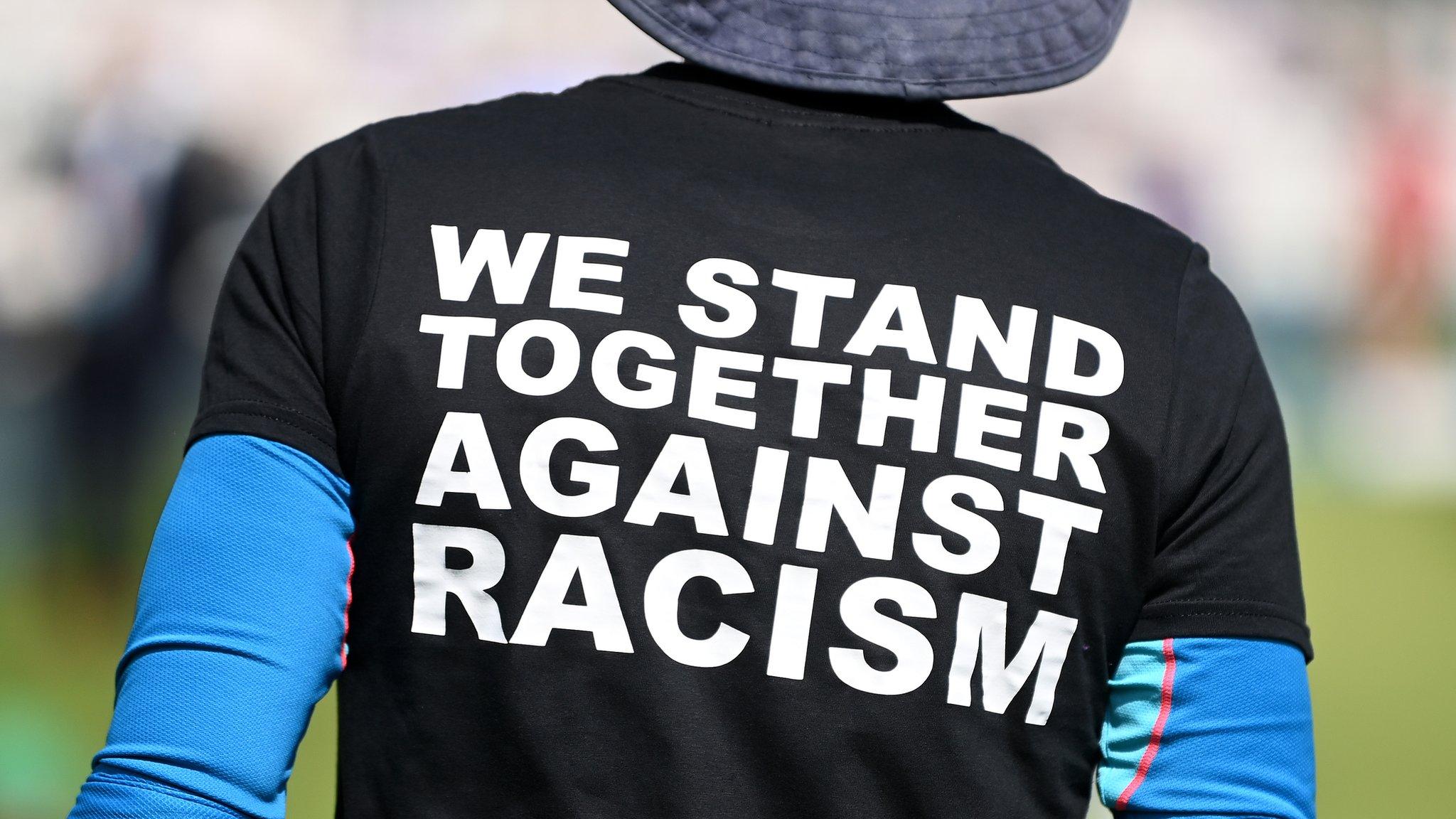
- Attribution
- Published17 November 2021
